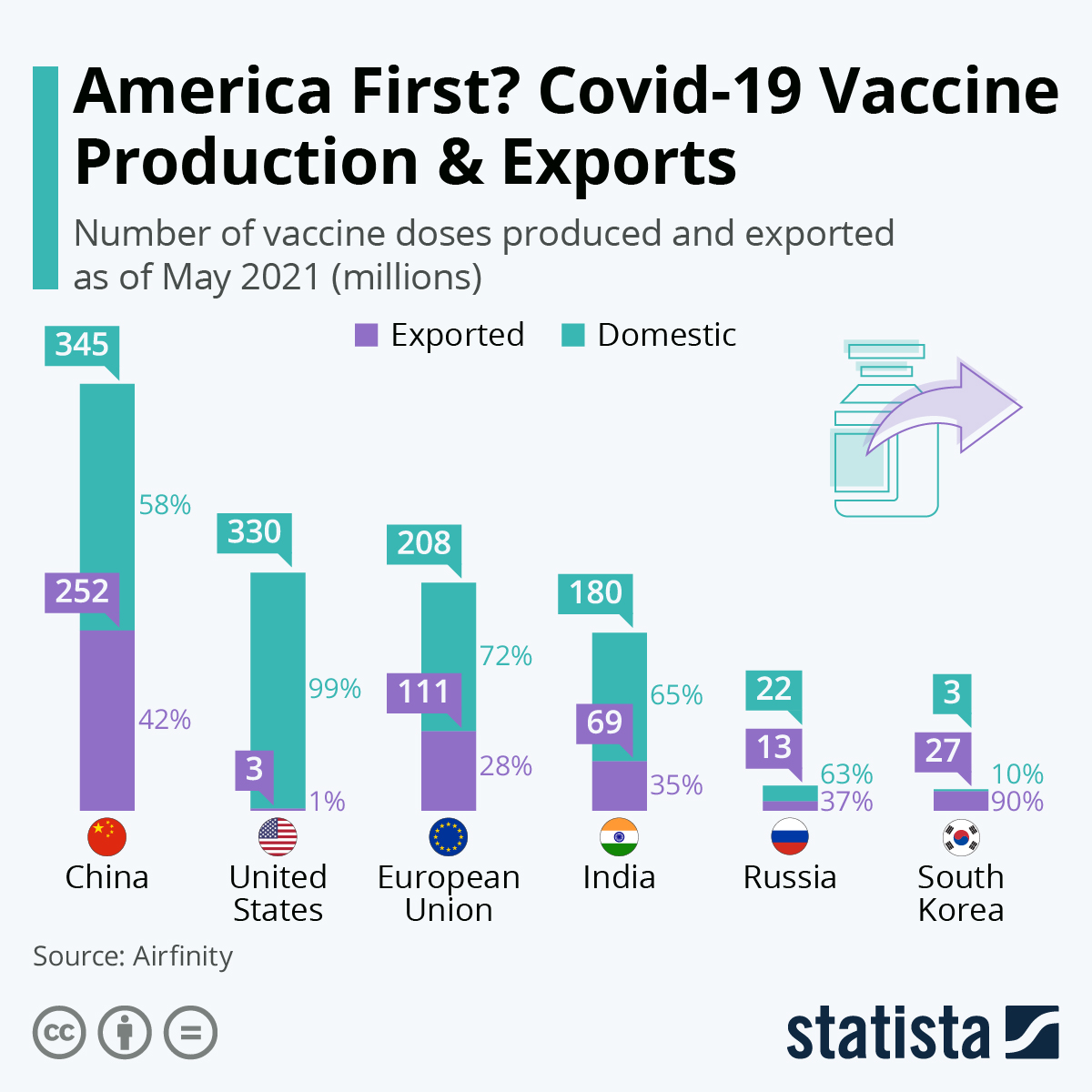Fears have been voiced that an introduction of a vaccine ban by the EU could prove a dangerous step in the direction of "vaccine nationalism". Despite those concerns, many governments have had extensive vaccine rollouts without sharing their supplies. The United States, which has been devastated by Covid-19, is one such example where its vaccine policy seems to be an example of "America First". Data compiled byAirfinity shows that out of the 164 million Covid-19 vaccines the U.S. manufactured up to March, none were exported. The UK's situation is similar with 16 million doses produced and zero exported.
By contrast, the EU has exported 42 percent of the 110 million doses it has produced so far while Chinahas also sent just over half of its 229 million doses overseas. India is another example with 44 percent of its 125 million doses going abroad. The EU is set to continue being one of the most generous vaccine producers so far and its new export policy is aimed at proportionality and reciprocity. That will involve recipient countries being examined to determine whether their epidemiological situation and vaccine campaigns are better or worse than the EU's as well as whether they have restrictions in place on their own exports of vaccines and associated raw materials.

No comments:
Post a Comment